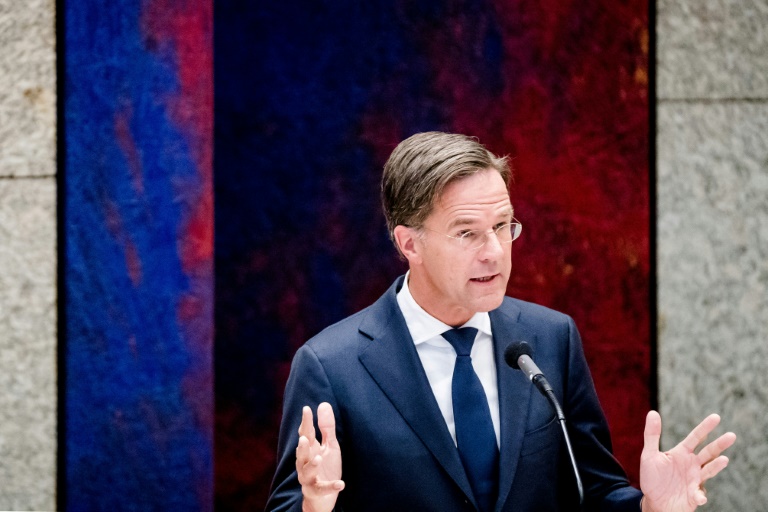Politics are in deadlock in the Netherlands following general elections, with a new government nowhere in sight and a myriad of small parties eating away at traditional power bases.
Incumbent Prime Minister Mark Rutte has had to put off forming the next cabinet until after the summer holidays, leaving the outgoing government to handle routine business.
With no clear winners after the vote in March and more small parties than ever in the 150-seat Lower House, the Dutch “polder model” of consensus politics is in danger of becoming a victim of its own success, experts say.
Ten of the 18 parties now in parliament hold five seats or fewer — making the political landscape more fragmented than ever and further complicating the fraught process of building the next government.
New parties include the progressive, pro-European Volt and JA21, a split-off from the populist Forum for Democracy, which garnered three seats each.
“The political sphere is withdrawing more-and-more into itself, afraid of one another, afraid of the ideas of others,” said Laurens Dassen, who leads Volt’s MPs in parliament.
But he said he believed even three seats, effectively 2.5 percent of the total vote of more than 10 million, could shake up things in parliament.
“In fact, three is a lot,” he told AFP.
Analysts however said three seats very seldom carry enough weight.
– Gordian knot –
The proliferation of small parties and the absence of an electoral threshold inevitably lead to long periods of negotiation which could end in a stalemate and even fresh polls, analysts say.
This is precisely the Gordian knot that awaits Rutte.
His Liberal centre-right VVD party won 34 seats while the progressive D66 of Foreign Trade Minister Sigrid Kaag came second with 24.
With a combined tally of 58, the Rutte-Kaag coalition need at least two other parties — all with different sets of conditions — to form a majority.
Both have been tasked to draw up a political programme to rally enough support from other parties to put together a coalition when negotiations start up again in late August.
“The Dutch proportional electoral system is one of the most open systems in the world,” said Koen Damhuis, political scientist at Utrecht University.
The participation of a large number of parties — a record 38 in 2021 — in the national polls “really gives voters a choice and makes them feel better represented,” he told AFP.
However, this “fragmentation makes government formation more and more complicated.
“Governments become more fragile, which in turn could fuel an aversion to ruling parties,” said Damhuis.
– ‘Dutchification’ –
The splintering of traditional political parties is not unique to the Netherlands and has spread to other European countries, a phenomenon analysts call the “Dutchification” of politics.
Despite the political horse-trading, Rutte, who has also been hit by a series of scandals, seemed set for a fourth term in office.
But he suffered a severe blow narrowly surviving a no-confidence vote in early April over his handling of the coalition talks, when he was accused of covering up efforts to rein in an outspoken MP.
Dubbed “Teflon Mark” after dodging a series of political fall-outs, Rutte needs to work hard to regain the trust of parties willing to go into a coalition.










